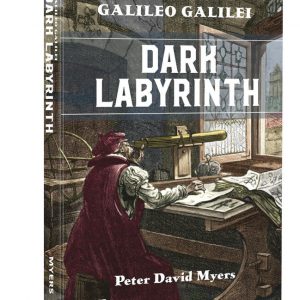Bitter Chicory to Sweet Espresso
More than ever before the message in the book, “Bitter Chicory to Sweet Espresso”, about Italian Heritage and Traditions need to be preserved for all times. Thus, circulation of the book is paramount. Hard cover (English), paperback (Italian) and e-book (both languages) formats are available on Amazon and kindle. The sale price is reduced 50% for the holidays. Reviews are available on www.cvittoria.com.
Price for one hard cover book is $10. The purchase of two books entitles you to a free copy.
2. E-book (Bitter Chicory to Sweet Espresso) – Only via Amazon.com
3. Paperback (Dal Caffe di Cicoria al Dolce Espresso) – kdp.amazon.com or Amazon.it
4. E-book (Dal Caffe di Cicoria al Dolce Espresso) – kdp.amazon.com or Amazon.it
More than ever before the message in the book, “Bitter Chicory to Sweet Espresso”, about Italian Heritage and Traditions need to be preserved for all times. Thus, circulation of the book is paramount. Hard cover (English), paperback (Italian) and e-book (both languages) formats are available on Amazon and kindle. The sale price is reduced 50% for the holidays. Reviews are available on www.cvittoria.com.
Where they can buy:
1. Hard cover (Bitter Chicory to sweet Espresso) – Amazon.com or directly to my address below. Further discounts for the holidays may be available only on the hard cover copy, if you write directly to:
Purpo, Inc.
1111 Crandon BLVD, C806
Key Biscayne, FL 33149
Price for one hard cover book is $10. The purchase of two books entitles you to a free copy.
2. E-book (Bitter Chicory to Sweet Espresso) – Only via Amazon.com
3. Paperback (Dal Caffe di Cicoria al Dolce Espresso) – kdp.amazon.com or Amazon.it
4. E-book (Dal Caffe di Cicoria al Dolce Espresso) – kdp.amazon.com or Amazon.it
BITTER CHICORY TO SWEET ESPRESSO
After 35 years teaching physics at a university in Boston, a local professor turned a page over in his career to write a non-scientific book that he always wanted to write. The title of the book, Bitter Chicory to Sweet Espresso, is a metaphor for the hard and better times of WW II in the Naples area.
Why write a book that covers the years from 1940 to 1949 in Italy when there are at least a thousand books describing every imaginable aspects of that period of time? Usually books about WW II are presented from the perspective of an adult, whereby general topics such as war strategies, number of casualties, devastation and territories occupied are written about. These topics in themselves are important in understanding general events of WW II and how it impacted society.
The point is that the description of this period has always been from a window seen by an adult, but rarely from a child’s perspective. Ordinary people in society are usually presented in previous books as being separate entities from strategies of war, with no linkage to war or decision makers. That perspective is much too narrow a view to present, especially when wars are waged on lands where casualties to local adults and children are unavoidable. As such, the full story of WW II taking place in the Naples area has yet to be told. This human and military
story is being told from what a child saw and heard then in the town of Avella.
Avella sits at a critical junction point on the slopes of the Apennine Mountains near Naples. From the surrounding mountains Via Appia, the old Roman road, Bay of Naples, Vesuvius and the coastline along the Tyrrhenian Sea are visible on a clear day.
Monte Avella overlooks the order of things in nature from above it all and her strong icy blast of winds reveals her mood and seasons. Fields of red poppies, chicory flowers, lavender violets, white and pink daisies, and wild dandelions adorn the farms and foothills of Avella in the spring, much like Monet’s landscape paintings. The flowers remind farmers and shepherds it is time to prepare for the next crop and remove the thick wool coats on sheep. Since ancient Roman times, Hazelnuts and olives from here have been exported to every corner of the world.
The mountains have protected the people in the valleys below from invading armies for centuries. They were a source of food and a symbol of inspiration to resist or survive foreign invasions. For over 3000 years invading armies have come and gone in the town of Avella. The town has adapted and survived through all these invasions in the past as well as WW II. Depending on which army was in town, different shades of misery came with them. Dante Alighieri’s “Divine Comedy” described imaginary atrocities during travels from purgatory to hell;


